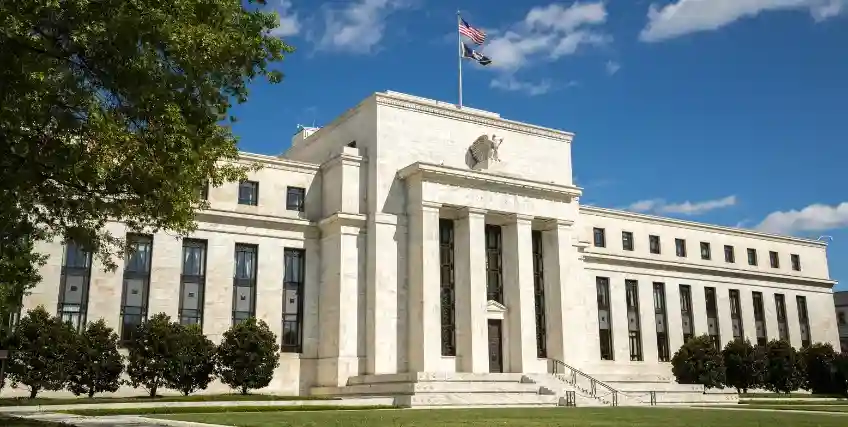Navigating the Shift: How Recent Fed Rate Cuts Are Influencing Secured Loan Rates
October 10, 2025 | Last Updated on: October 10, 2025

For the past two years, getting a business loan has felt very difficult due to rising interest rates. Now, the Federal Reserve is unwinding its rates – a collective relief for both borrowers and lenders.
If you’ve been waiting for the right moment to borrow or refinance, this might be a good time. Before taking advantage of this change, it’s essential to understand how Fed rate cuts influence secured loan rates and overall borrowing costs.
A lower interest rate leads to cheaper borrowing. However, the impact on secured loans and loan payments may depend on several factors like market conditions, credit strength, collateral value, and risk factors.
In this article, discover how the recent Fed rate cuts are changing the landscape for secured loan rates across the United States. You’ll learn how lower benchmark rates work through the financial system, how lenders are adjusting their strategies and the emerging opportunities for borrowers in 2025.
How the Fed’s Benchmark Moves Matter for Lending
The Fed doesn’t directly set the interest rate on secured loans, mortgages, or equipment financing, but its policies shape overall lending conditions, and influence market conditions. These changes influence secured loan interest rates and loan rates more broadly.
Here’s a simplified view:
- The Fed changes the federal funds rate (or its target range).
- This influences short-term loan costs among banks.
- Banks adjust their cost of funds, and pass along changes via their lending spreads.
- Lenders may change interest rate offers on secured vs unsecured lines.
- Businesses with good credit history or strong collateral may see favorable changes.
Impact of Fed Rate Cuts on Secured Loan Rates
In September 2025, the Fed lowered its benchmark rate by 0.25 % in its first cut of the year. There may be additional cuts later in the year according to market expectations.
Long-term rates, however, are influenced less by the Fed and more by inflation, credit spreads, and global economic demand.
Therefore, long-term secured loan rates may not fall as much as the short-term rates. Similarly, fixed rate secured loans may not decrease with this change in Fed rates.
If you are planning to get a business loan from a federal credit union or just compare share secured loans offered by credit unions, then it is important to know their rates as well. Credit unions have to set a maximum annual percentage rate (APR) for their consumer loans. Currently, Federal Credit Unions have a maximum interest rate ceiling on loans of 18 percent per year, under NCUA rules.
What is a Secured Loan and Why Rates Differ?
A secured loan is one backed by collateral like real estate, equipment, inventory, or other tangible assets. Secured loan interest rates tend to be lower than equivalent unsecured loan rates because the lender has recourse to that collateral which mitigates the default risk.
In a low-rate environment:
- Banks’ costs to borrow or fund capital drop.
- The risk premium or credit spread lenders charge may narrow.
- Lenders compete more aggressively for creditworthy borrowers, pushing best secured loan deals.
- Borrowers with excellent credit score, strong creditworthiness, and good collateral are especially well-positioned.
The Effects of Fed Cuts on Secured Loan Rates
Secured loan rates rarely shift in perfect sympathy with Fed cuts. Here’s why:
- Adjustment Delay: Lenders usually take some time to observe market stability before lowering their loan rates.
- Minimum Rate Limits: Some loans have built-in minimum margins set by lenders, which means your rate might not drop fully even if the Fed cuts rates.
- Risk Environment: If economic conditions are uncertain, lenders may hold back on cutting rates sharply to protect margins.
- Maturity Differences: Short-term secured loans will reflect cuts more quickly than long-term ones.
In favorable conditions, secured loan rates could decline by nearly the full 25 basis points or more.
In moderate or cautious scenarios, the decline might be just 10–15 bps (or more, depending on competition). In worst-case, if lenders are risk-averse, you might see minimal movement.
Effects on Monthly Payment & Loan Term
Lower secured loan interest rates translate directly into cheaper monthly payments (for the same loan amount and term). For example:
- Suppose you borrow $500,000 secured by property, at a 5% over 15 years.
- If the APR drops to 4.75%, the monthly payment decreases meaningfully (all else equal).
- Alternatively, you might opt to keep payment similar but shorten the loan term, saving interest over time.
Borrowers can also consider refinancing or applying for new financing to lock in the best secured loan rates while conditions remain favorable.
But watch for origination fees, closing costs, and disclosures that may erode savings.
How Lenders Adjust Policies When Rates Fall
When the benchmark comes down, lenders don’t just adjust interest rate offers; they often tweak internal policies too. Some possible shifts may be:
- Easier underwriting standards for borrowers with strong credit strength
- More flexibility on loan term
- Dropping or reducing origination fees
- More promotional offers to win best secured loan rates deals
Yet, lenders may still preserve minimum spread of floors or include clauses that prevent rates from falling below certain thresholds.
Some lenders also combine secured loans with credit checks, credit report reviews, and assessments of credit history, credit score, and creditworthiness. Borrowers with a good reputation may see the biggest benefit.
Opportunities for Businesses Borrowing in 2025
If you run a business or are planning a large capital purchase, the current environment offers several strategic possibilities:
How to Position for the Best Secured Loan Rates
- Polish your books. Strong financials improve your creditworthiness.
- Maintain excellent credit history and credit score.
- Select collateral that holds value (equipment, real estate, etc.).
- Approach multiple lenders, including banks, credit unions, and online lenders.
- Use loan calculators to compare monthly payment implications.
- Lock in rates early if further cuts are expected.
Types of Secured Financing to Explore
- Real estate backed secured loans (e.g. mortgages, commercial real estate)
- Equipment financing / leasing secured loan
- Asset-based lending (receivables, inventory)
- Certificate secured loan or savings secured loan (especially with credit unions)
- Lines of credit secured by collateral
- For small businesses, portions of home improvement or expansion may be financed with secured personal loans
Potential Risks with Fed Cuts
- Collateral value may decline
- Loans may be adjustable (variable rate) rather than fixed
- Terms and disclosures may include prepayment penalties or other clauses
- Lenders may tighten credit overall if the broader economy weakens
- Watch out for origination fees or hidden charges that offset rate savings
What’s Next for Rates
Analysts expect a few more cuts in 2025, though the pace will depend heavily on inflation, labor market dynamics, and global factors. Each cut could gradually nudge secured loan rates down. But in a volatile rate environment, lenders may be cautious.
Key Indicators to Monitor
- Treasury yields and yield curve (longer-term rates)
- Credit spreads (corporate, municipal)
- Inflation and core inflation data
- Bank net interest margins
- Credit conditions and delinquencies
- NCUA actions or changes in credit union interest rate ceilings
The path from Fed cuts to cheapest secured loans is not always direct or linear. But with vigilance and strategy, businesses can tap into opportunities.
Conclusion
The Fed’s 2025 rate cuts are opening a window of opportunity for borrowers seeking lower cost secured credit. While secured loan rates won’t always drop as quickly or as much as the benchmark, borrowers with strong credit, good collateral, and savvy market awareness could access very favorable terms.
If you’re thinking of financing equipment, real estate, or other capital investments, now is the moment to explore best secured loan deals, get multiple quotes, and use loan calculators to understand your monthly payment and total cost. In a shifting environment, being proactive and informed can make all the difference.
FAQs About Secured Loan Rates & Fed Cuts
1. What is a secured loan?
A secured loan is one backed by collaterals, such as real estate, equipment, or a savings account. The lender can seize the collateral if the borrower defaults.
2: How soon after a Fed cut will secured loan interest rates fall?
It depends. Some lenders adjust quickly (weeks to months), while others wait to confirm that the cut is sustainable. There may be a delay of several months.
3. Do fixed rate secured loans automatically drop when interest rates fall?
Fixed-rate loans won’t change after issuance. Savings come only if you refinance or replace the loan with a new one at a lower rate.
4. How can I find the cheapest secured loans or best secured loan rates?
To find an ideal secured loan, compare offers from banks, credit unions, and online lenders. Use loan calculators, check disclosures, ask about origination fees, and consider collateral type, term, and your credit score.
5. Are there downsides to refinancing into lower secured loan rates?
Yes, refinancing often incurs fees, closing costs, and potentially longer terms. If your collateral value has declined, you may also face higher LTV risk.
6. How do credit unions’ rate ceilings affect secured loan offers?
Federal credit unions are limited by NCUA’s interest rate ceiling. That means their annual percentage rate (APR) offers will fall within that legal bound.
7. What difference do collateral type and LTV make?
Better collateral and lower LTV ratio reduce lender risk. That lets lenders offer more competitive rates. If you offer high-quality collateral and use conservative LTV, you’ll usually get better secured loan rates.
Frequent searches leading to this page
Term Loans are made by Itria Ventures LLC or Cross River Bank, Member FDIC. This is not a deposit product. California residents: Itria Ventures LLC is licensed by the Department of Financial Protection and Innovation. Loans are made or arranged pursuant to California Financing Law License # 60DBO-35839




